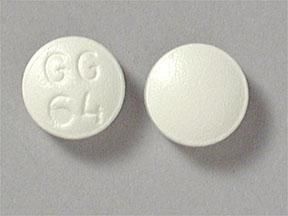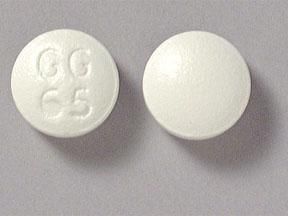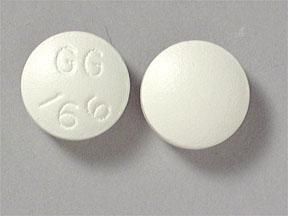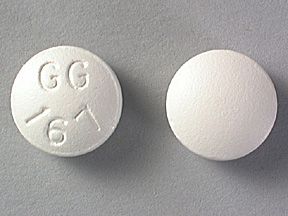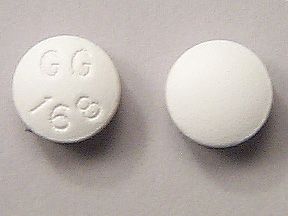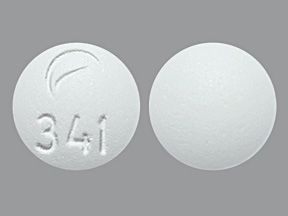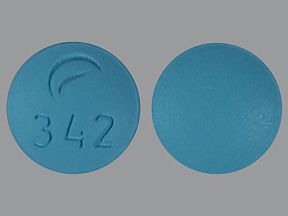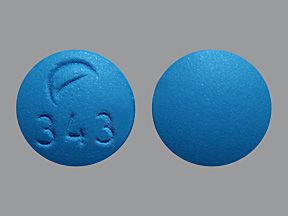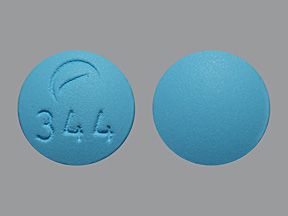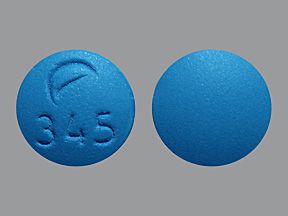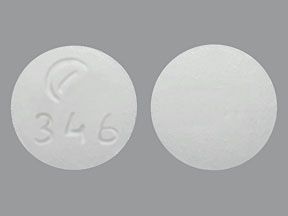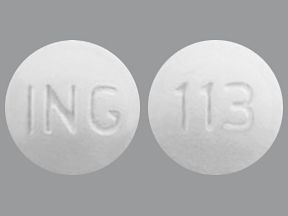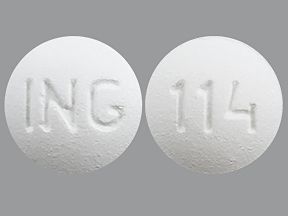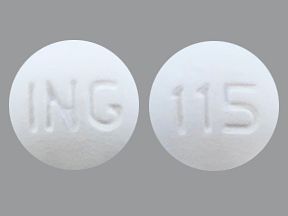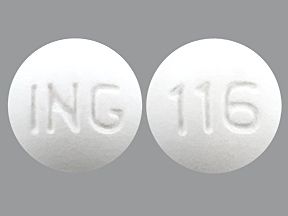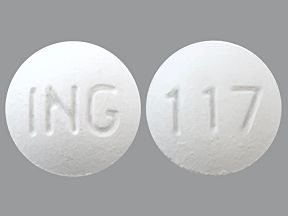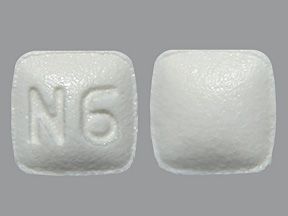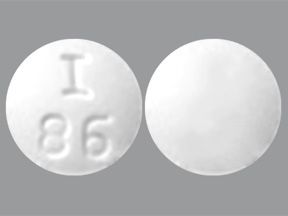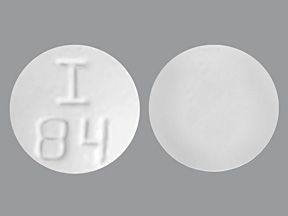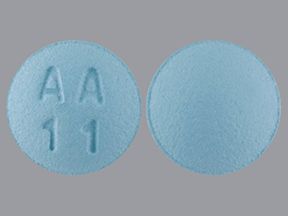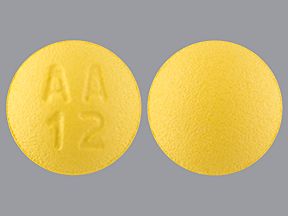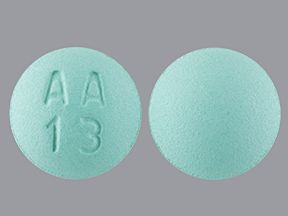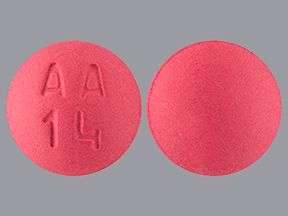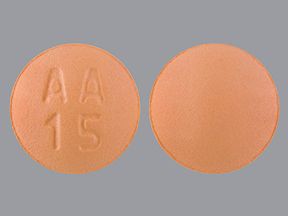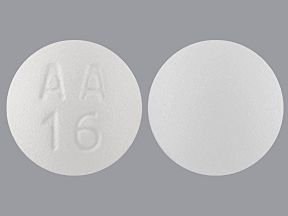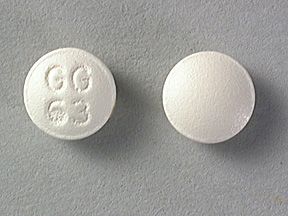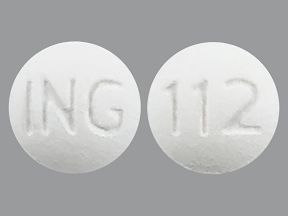Key takeaways
- Desipramine is a tricyclic antidepressant used to treat depression in adults.
- Side effects that desipramine may cause include constipation, drowsiness, and suicidal thoughts.
- Dosage varies based on a person’s age and the severity of their depression.
Desipramine is a prescription drug. It comes as an oral tablet, which is a tablet that you take by swallowing.
Desipramine is available as a brand-name drug called Norpramin. It’s also available as a generic drug. Generic drugs usually cost less than the brand-name version. In some cases, they may not be available in every strength or form as the brand-name drug.
Desipramine may be used as part of a combination therapy. This means you may need to take it with other medications.
Why it’s used
Desipramine is used to treat depression, also referred to as major depressive disorder.
Time for this medication to take effect
Desipramine can start to work in 2 to 5 days. However, it may take 2 to 3 weeks before you see a reduction in your depression symptoms.
How it works
Desipramine belongs to a class of drugs called tricyclic antidepressants. A class of drugs is a group of medications that work in a similar way. These drugs are often used to treat similar conditions.
How a drug works is known as its mechanism of action.
It’s not known exactly what desipramine’s mechanism of action is to help treat depression. It’s thought that the drug may block the reuptake of a chemical messenger called norepinephrine. This means it may keep your brain from reabsorbing this substance. This action raises the level of norepinephrine in your body, which helps improve your mood.
Desipramine can cause mild or serious side effects. The following text contains some of the key side effects that may occur while taking desipramine. These are not all the possible side effects desipramine may cause.
For more information on the possible side effects of desipramine, or tips on how to deal with a bothersome side effect, talk with your doctor or pharmacist.
Note: Desipramine oral tablet may cause drowsiness. You should not drive or use heavy machinery until you know how desipramine affects you. Drowsiness may mean your body is not responding well to this drug. Your doctor may need to decrease your dosage.
More common side effects
The more common side effects of desipramine include:
- dizziness
- dry mouth
- blurry vision
- difficulty urinating
- constipation
- nausea
- vomiting
- loss of appetite
- sexual problems, such as decreased libido (sexual desire) or erectile dysfunction
- fast heart rate
- high blood pressure or low blood pressure
- drowsiness
If these effects are mild, they may go away within a few days to a couple of weeks. If they’re more severe or do not go away, talk with your doctor or pharmacist.
Serious side effects
Call your doctor right away if you have serious side effects. Call 911 if your symptoms feel life threatening or if you think you’re having a medical emergency. Serious side effects and their symptoms can include the following:
- Eye problems. Symptoms can include:
- eye pain
- vision problems, such as blurry vision
- swelling or redness in or around the eye(s)
- Heart problems. Symptoms can include:
- pounding heartbeat
- irregular heart rhythm
- Heart attack. Symptoms can include:
- chest pain
- shortness of breath
- discomfort in your upper body
- Stroke. Symptoms can include:
- weakness in one part or side of your body
- slurred speech
- Seizures.
- Serotonin syndrome. Symptoms can include:
- agitation, hallucinations (seeing things that are not real), or other changes in mental status
- overactive reflexes (coordination problems or muscle twitching)
- tremors
- racing heartbeat
- high or low blood pressure
- sweating or fever
- nausea, vomiting, or diarrhea
- muscle rigidity (stiffness)
- Neuroleptic malignant syndrome. Symptoms can include:
- increased temperature or fever
- sweating
- muscle rigidity (stiffness)
- muscle spasms
- involuntary movements, such as in the face
- irregular or racing heartbeat
- increased blood pressure
- passing out
- Suicide risk and worsening depression. Symptoms can include:
- thoughts about suicide or dying
- suicide attempts
- new or worsened depression
- new or worsened anxiety
- feeling very agitated or restless
- panic attacks
- difficulty sleeping
- new or worsened irritability
- acting aggressive, angry, or violent
- acting on dangerous impulses
- mania (an extreme increase in activity and talking)
- other unusual changes in behavior or mood
Note: Desipramine has a boxed warning for suicidal thoughts and actions. This is the most serious warning from the Food and Drug Administration (FDA). For more information, see “FDA warning: Suicidal thoughts and actions” near the beginning of this article.
Help is out there
If you or someone you know is in crisis and considering suicide or self-harm, please seek support:
- Call or text the 988 Suicide and Crisis Lifeline at 988 or chat at 988lifeline.org. Caring counselors are available to listen and provide free and confidential support 24/7.
- Text HOME to the Crisis Text Line at 741741 to connect with a volunteer crisis counselor for free and confidential support 24/7.
- Not in the United States? Find a helpline in your country with Befrienders Worldwide.
- Call 911 or your local emergency services number if you feel safe to do so.
If you’re calling on behalf of someone else, stay with them until help arrives. You may remove weapons or substances that can cause harm if you can do so safely.
If you’re not in the same household, stay on the phone with them until help arrives.
Desipramine can interact with several other medications. Different interactions can cause different effects. For instance, some can interfere with how well a drug works, while others can cause increased side effects.
Here you’ll find examples of medications that can interact with desipramine. This section does not list all drugs that may interact with desipramine.
Before taking desipramine, be sure to tell your doctor and pharmacist about all prescription, over-the-counter, and other drugs you take. Also, tell them about any vitamins, herbs, and supplements you use. Sharing this information can help you avoid potential interactions.
If you have questions about drug interactions that may affect you, ask your doctor or pharmacist.
Drugs that should not be used with desipramine
You should not take certain drugs with desipramine. When used with desipramine, these drugs can cause dangerous effects in the body. Examples of these drugs include:
Monoamine oxidase inhibitors (MAOIs): Using MAOIs with desipramine raises your risk of serotonin syndrome. (For a list of symptoms, see the “Desipramine side effects” section.) You should wait 14 days between taking desipramine and taking an MAOI. Examples of MAOIs include:
- isocarboxazid (Marplan)
- phenelzine (Nardil)
- tranylcypromine (Parnate)
Linezolid or intravenous methylene blue: Using linezolid (Zyvox) or methylene blue (ProvayBlue) with desipramine may increase your risk of serotonin syndrome. Note that you can resume taking desipramine 24 hours after your last dose of linezolid or methylene blue.
Drugs that increase your risk of side effects
Taking desipramine with certain drugs may increase your risk of side effects from those other drugs or from desipramine.
Increased side effects from other drugs
Taking desipramine with certain medications raises your risk of side effects from those drugs. Examples of these drugs include:
- tranquilizers, such as:
- olanzapine (Zyprexa)
- clozapine (Clozaril)
- sedatives/hypnotics, such as:
- phenobarbital (Sezaby)
- pentobarbital (Nembutal)
- benzodiazepines, such as:
- chlordiazepoxide (Librium)
- diazepam (Valium)
- serotonergic drugs, such as:
- triptans, including sumatriptan (Imitrex) and zolmitriptan (Zomig)
- other tricyclic antidepressants, including amitriptyline and imipramine
- fentanyl
- lithium (Lithobid)
- tramadol
- buspirone
- anticholinergic drugs, such as:
- oxybutynin
- trihexyphenidyl
- scopolamine
- sympathomimetic drugs, such as:
Increased side effects from desipramine
Taking desipramine with certain medications raises your risk of side effects from desipramine. This is because the amount of desipramine in your body may be increased. Examples of these drugs include:
- cimetidine (Tagamet HB)
- other antidepressants, such as:
- citalopram (Celexa)
- duloxetine (Cymbalta)
- escitalopram (Lexapro)
- fluoxetine (Prozac)
- paroxetine (Paxil)
- sertraline (Zoloft)
- antiarrhythmic drugs, such as
- flecainide
- propafenone
- quinidine
- antipsychotics such as:
- chlorpromazine
- fluphenazine
- thioridazine
The desipramine dosage your doctor prescribes will depend on several factors. These include:
- your age
- the condition being treated
- how severe your condition is
- other medical conditions you have
- how you react to the first dose
Typically, your doctor will start you on a low dosage and adjust it over time to reach the dosage that’s right for you. They’ll ultimately prescribe the smallest dosage that provides the desired effect.
The following information describes dosages that are commonly used or recommended. However, be sure to take the dosage your doctor prescribes for you. Your doctor will determine the best dosage to suit your needs.
Dosage for depression
Generic: desipramine
- Form: oral tablet
- Strengths: 10 milligrams (mg), 25 mg, 50 mg, 75 mg, 100 mg, 150 mg
Brand: Norpramin
- Form: oral tablet
- Strengths: 10 mg, 25 mg, 50 mg, 75 mg, 100 mg, 150 mg
Adult dosage (ages 18 to 64 years)
- Typical starting dosage: Your doctor may start you on a lower dosage and increase it as needed. Your dosage may be taken in divided doses or as a single dose.
- Usual dosage: 100 to 200 mg per day in divided doses or as a single dose.
- Maintenance therapy: After your depression symptoms ease, if you require long-term treatment, your doctor will recommend the lowest effective dosage that you should take. Once you get to your maintenance (ongoing) dosage, you can take your total daily dose once daily.
- Maximum dosage: 300 mg per day. If you require doses as high as this, you’ll likely start desipramine treatment in a hospital. This will allow your doctor to monitor you closely each day and check your heart rate and rhythm.
Child dosage (ages 13 to 17 years)
- Typical dosage: 25 to 100 mg per day in divided doses or as a single dose.
- Maintenance therapy: After your child’s depression symptoms ease, if they require long-term treatment, their doctor will recommend the lowest effective dosage that your child should take. Once your child gets to the maintenance dosage, they can take the total daily dose once daily.
- Maximum dosage: Your child’s doctor may slowly increase the dosage to 100 mg per day. In more severe disease, your child’s doctor may further increase the dosage to 150 mg per day. Dosages above 150 mg per day are not recommended.
Note: This drug can cause suicidal thoughts in adolescents (see “FDA warning: Suicidal thoughts and actions”). This risk must be considered against the possible benefit of this drug for this age group.
Child dosage (ages 0 to 12 years)
Desipramine is not recommended for use in children younger than 13 years.
Older adult dosage (ages 65 years and older)
- Typical dosage: 25 to 100 mg per day in divided doses or as a single dose.
- Maintenance therapy: After your depression symptoms ease, if you require long-term treatment, your doctor will recommend the lowest effective dosage that you should take. Once you get to your maintenance (ongoing) dosage, you can take your total daily dose once daily.
- Maximum dosage: Your doctor may slowly increase your dosage to 100 mg per day. If needed, your doctor may further increase the dosage to 150 mg per day. Dosages above 150 mg per day are not recommended.
Whether you have health insurance or not, cost may be a factor when you’re considering desipramine. What you’ll pay for desipramine may depend on several things, such as your treatment plan and the pharmacy you use.
Here are a few things to consider regarding cost:
- Comparing pharmacies: The price of desipramine may vary depending on which pharmacy you use. As a result, it can help to compare prices across pharmacies to find the lowest cost.
- Drug coupons: You may be able to find drug coupons on prescription discount websites that can reduce the cost of your medication. These coupons cannot be used with insurance copays or benefits, but the discounted price may be lower than what you would pay through insurance.
- Financial assistance: Some websites provide details about drug assistance programs, ways to make the most of your insurance coverage, and links to savings cards and other services. Two such websites are:
This drug comes with several warnings.
FDA warning: Suicidal thoughts and actions
This drug has a boxed warning. This is the most serious warning from the Food and Drug Administration (FDA). A boxed warning alerts doctors and patients about drug effects that may be dangerous.
Desipramine may increase suicidal thoughts or behaviors. This risk is higher within the first few months of treatment or with changes in dosage. It’s also higher in children and young adults ages 24 and younger. Note that the FDA has not approved this drug for use in children ages 17 years and younger.
Pay close attention to any unusual changes in your mood, behaviors, thoughts, or feelings. If you notice any changes, call your doctor right away.
Worsening depression warning
Desipramine may make your depression worse. This risk is higher during the first few months of treatment or when your dosage changes.
If you have any unusual changes in behavior while taking this drug, call your doctor. These changes can include panic attacks, extreme mood changes, difficulty sleeping, or feeling anxious, agitated, or restless.
Drowsiness and dizziness warning
This drug may cause drowsiness or dizziness. You should not drive, use heavy machinery, or perform any dangerous tasks until you know how this drug affects you.
High blood pressure during surgery warning
Tell your doctor if you’re scheduled to have surgery. Desipramine should be stopped as soon as possible before surgery because it can cause high blood pressure. This can be dangerous during surgery.
Allergy warning
Desipramine can cause allergic reactions. Symptoms can include:
- skin rash
- itching
- petechiae (tiny, purplish-red spots on the skin)
- difficulty breathing
- swelling of your face, throat, or tongue
If you develop these symptoms, call 911 or go to the nearest emergency room.
You should not take this drug again if you’ve ever had an allergic reaction to it. Taking it again could be fatal.
Alcohol interaction warning
Consuming drinks that contain alcohol can decrease the amount of desipramine in your body. This means it will not work as well to treat your depression. Alcohol may also increase your risk of drowsiness, suicidal thoughts, or taking too much desipramine.
If you drink alcohol, talk with your doctor about whether this drug is safe for you to take.
Warnings for people with certain health conditions
For people with a history of mania or bipolar disorder: Taking this drug alone may trigger a mixed or manic episode. Talk with your doctor about whether this drug is safe for you.
For people with seizures: This drug raises your risk of seizures. Tell your doctor if you have a history of seizures. This will help them determine whether desipramine is a good treatment option for your depression.
For people with heart problems: Taking this drug raises your risk of a dangerously fast heart rate, heart attack, stroke, or other heart problems. Tell your doctor if you have any heart problems before starting this drug. You should not take this drug if you’ve recently had a heart attack. Your doctor will decide if and when you should start taking this drug again.
For people with hyperthyroidism (high thyroid levels): This drug raises your risk of arrhythmias (irregular heart rhythms). Talk with your doctor about whether this drug is safe for you.
For people with eye problems such as closed-angle glaucoma: This drug can worsen your eye condition. Tell your doctor about any eye problems you may have. They will discuss with you whether this drug is safe for you to take.
For people with problems urinating: This drug can worsen problems with urination. Talk with your doctor about whether this drug is safe for you.
For people with kidney problems: If you have kidney problems or a history of kidney disease, your body may not be able to clear (remove) this drug well. This may increase the levels of this drug in your body and cause more side effects. If you have kidney problems, your doctor can let you know whether desipramine is a good treatment option for your depression.
For people with liver problems: If you have liver problems or a history of liver disease, you may not be able to process this drug as well. This may increase the levels of this drug in your body and cause more side effects. Talk with your doctor about whether this drug is safe for you.
Warnings for other groups
For pregnant women: It’s not yet known whether desipramine is safe and effective for use in pregnant women.
Tell your doctor if you’re pregnant or planning to become pregnant. Desipramine should be used during pregnancy only if the potential benefit justifies any potential risk.
For women who are breastfeeding: It is unknown whether desipramine is safe to use during breastfeeding. Talk with your doctor if you breastfeed your child. You may need to decide whether to stop breastfeeding or stop taking this medication.
For older adults: The kidneys of an older adult may not work as well as they used to. This can cause the body to remove desipramine more slowly. As a result, a higher amount of this drug stays in the body for a longer time. This raises the risk of side effects. Desipramine may also increase the risk of falls or confusion.
For children: It’s not known whether this drug is safe or effective for children. Its use is not recommended in people ages 17 years and younger. This drug may cause suicidal thoughts and behaviors in children and young adults during the first few months of use. (For more information, see the “FDA warning: Suicidal thoughts and actions” section earlier in this article.)
Desipramine is used for long-term treatment. It comes with serious risks if you do not take it as prescribed.
If you stop taking the drug suddenly or do not take it at all: You should not stop taking desipramine suddenly. Stopping this drug suddenly can cause withdrawal symptoms. These can include nausea, headache, and malaise (feeling uncomfortable or uneasy).
Withdrawal symptoms are side effects that can occur when you stop taking a drug that your body has become dependent on. With dependence, your body needs the drug to function as usual.
If you do not take this drug at all, your symptoms of depression may not ease.
If you miss doses or do not take the drug on schedule: Your medication may not work as well or may stop working completely. For this drug to work well, a certain amount needs to be in your body at all times.
If you take too much: You could have dangerous levels of the drug in your body. Symptoms of an overdose of this drug can appear quickly and may include:
- changes in heart rhythm and rate
- dangerously low blood pressure
- dilated pupils (widening of the dark centers of the eyes)
- feeling very agitated
- overactive reflexes (coordination problems or muscle twitching)
- rigid muscles
- vomiting
- low body temperature or high fevers
- lowered breathing rate
- drowsiness
- fainting
- confusion
- difficulty concentrating
- seizures
- visual hallucinations (seeing things that are not real)
If you think you’ve taken too much of this drug, call your doctor or local poison control center. If your symptoms are severe, call 911 or go to the nearest emergency room right away.
What to do if you miss a dose: Take your dose as soon as you remember. But if you remember just a few hours before your next scheduled dose, take only one dose. You should never try to catch up by taking two doses at once. This could result in dangerous side effects.
How to tell whether the drug is working: Your depression symptoms should decrease, and your mood should improve. Desipramine can start to work in 2 to 5 days, but it may take 2 to 3 weeks before you see your symptoms easing.
Keep these considerations in mind if your doctor prescribes desipramine for you.
General
- You can take desipramine with or without food.
- Take this drug at the time(s) recommended by your doctor.
- You can cut or crush the tablet.
Storage
- Store desipramine at a room temperature between 59°F and 86°F (15°C and 30°C).
- You should not store this medication in moist or damp areas, such as bathrooms.
Refills
A prescription for this medication is refillable. You should not need a new prescription for this medication to be refilled. Your doctor will write the number of refills authorized on your prescription.
Travel
When traveling with your medication:
- Always carry your medication with you. When flying, you should never put it into a checked bag. Keep it in your carry-on bag.
- You do not need to worry about airport X-ray machines. They cannot harm your medication.
- You may need to show airport staff the pharmacy label for your medication. Always carry the original prescription-labeled container with you.
- You should not put this medication in your car’s glove compartment or leave it in the car. Be sure to avoid doing this when the weather is very hot or very cold.
Clinical monitoring
You and your doctor should monitor certain health issues during desipramine treatment. This can help make sure you stay safe while you take this drug. These issues include:
- Mental health and behavioral problems: You and your doctor should monitor your moods, behavior, thoughts, and feelings. You should also monitor your symptoms of depression and any other mental health conditions you may have. This drug can cause new or worsen existing mental health and behavior problems.
- Kidney function: You may have blood tests to check how well your kidneys are working. If your kidneys are not working well, your doctor may lower your dosage of this drug. Your doctor will also check to see if you’re not urinating enough, which can be a side effect of this drug.
- Eye health: You may have an eye exam to check whether you’re at risk of an acute glaucoma attack. Your risk can be higher depending on the anatomy of your eyes. Your doctor may check your pupils to see whether they are dilated (widened), which can be a side effect of this drug. They may also check the pressure in your eyes.
- Blood pressure: Your doctor may check your blood pressure. This is because desipramine can increase or decrease your blood pressure.
- Heart function: You may have an electrocardiogram while taking desipramine. This will check whether desipramine is causing any changes in how your heart is working. If it is, your doctor may need to adjust your dosage.
- Liver function: You may have blood tests to check how well your liver is working while taking desipramine. This drug may increase your liver enzymes, which can be a sign of liver damage.
- Pancreatic enzyme levels: You may have blood tests to check the level of your pancreatic enzymes while taking desipramine. This drug may increase your pancreatic enzyme levels.
- Blood cell count: You may have blood tests to check how well your bone marrow is working while taking desipramine. Your bone marrow makes white blood cells that help fight infection, as well as platelets and red blood cells. In some people, desipramine can change the levels of different blood cells.
- Thyroid function: Blood tests can check how well your thyroid is working. Desipramine can cause heart problems, including changes in heart rhythm. This can worsen or mimic effects that can be caused by increased function of your thyroid gland.
- Weight: Desipramine can cause weight changes. Your doctor will monitor you for weight changes during desipramine treatment.
- Body temperature: Desipramine can cause increased body temperature. This can be a sign of a severe side effect called serotonin syndrome. Your doctor will monitor your body temperature during desipramine treatment.
Sun sensitivity
Desipramine can make your skin more sensitive to the sun. This increases your risk of sunburn. Try to avoid the sun if you can. If you cannot avoid the sun, be sure to wear protective clothing and apply sunscreen.
Availability
Not every pharmacy stocks this drug. When filling your prescription, be sure to call ahead to make sure your pharmacy carries it.
Hidden costs
You may need to have certain blood tests or exams to check your health while you take desipramine. The cost of these tests or exams will depend on your insurance coverage.
There are other drugs available to treat your condition. Some may be better suited for you than others. Talk with your doctor about other drug options that may work for you.
Disclaimer: Healthline has made every effort to make certain that all information is factually correct, comprehensive, and up to date. However, this article should not be used as a substitute for the knowledge and expertise of a licensed healthcare professional. You should always consult your doctor or another healthcare professional before taking any medication. The drug information contained herein is subject to change and is not intended to cover all possible uses, directions, precautions, warnings, drug interactions, allergic reactions, or adverse effects. The absence of warnings or other information for a given drug does not indicate that the drug or drug combination is safe, effective, or appropriate for all patients or all specific uses.





